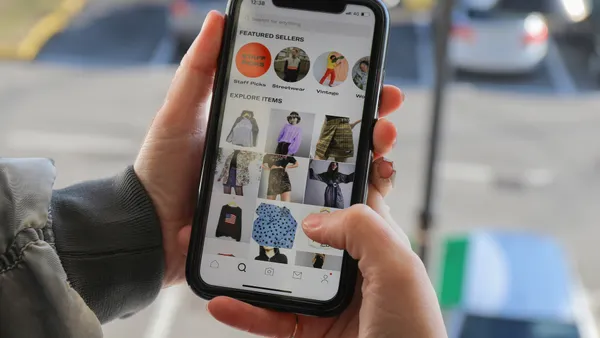Dive Brief:
-
Victoria's Secret on Tuesday announced a plan to sell a minority stake in its China business to Hong Kong-based lingerie maker Regina Miracle International in the first quarter of fiscal 2022, subject to regulatory clearance.
-
They have formed a joint venture, with Victoria's Secret retaining 51% ownership and Regina Miracle buying the other 49% for $45 million in cash, according to an emailed press release.
-
The joint venture, which the companies said builds on their two decade-long relationship, will run all Victoria Secret stores and its online business in China, per the release.
Dive Insight:
In a statement, Victoria's Secret CEO Martin Waters called Regina Miracle "a valued merchandise supplier partner for more than twenty years."
The brand is maintaining control of its business in China, but has turned to a local, known player to run it, and that makes sense, according to Jane Hali, chief executive at Jane Hali & Associates.
"This seems to be a wise solution to distribution in China," she said by email. "Companies are successful when they are consumer-centric and know their customers wants and needs. [Victoria's Secret] was in China but it was unsuccessful under their management."
The brand's results in China have nevertheless represented a bright spot in its global performance, according to UBS analysts led by Jay Sole. Victoria's Secret's international growth has been disappointing for the last five to seven years, possibly due to an over-emphasis on its Victoria's Secret Beauty and Accessories stores in some places and because "the intimate apparel category is proving to be more nuanced than previously thought, in terms of what styles, sizes, price points, and brand messaging consumers want in each market," according to the UBS research note. The analysts pointed to several ways that Victoria's Secret has sought to gain traction abroad, including via joint ventures like the one announced Tuesday, along with franchising, wholesale and company-operated stores.
Waters said the establishment of this joint venture finishes up a multi-year repositioning of the brand's international operations. "We expect the partnership will positively impact the speed and agility of the business to benefit consumers and provide us with a platform for a strong future in this important market," he said.
UBS analysts do see room for growth in China. They crunched WeChat data and found the brand to be "on a solid path," even improving among Chinese consumers while other U.S. brands weathered backlash there. Furthermore, Victoria's Secret's social media initiatives seem to be resonating with Chinese consumers, and the brand could probably add to the 63 stores it was running there as of October, UBS also said this week.














